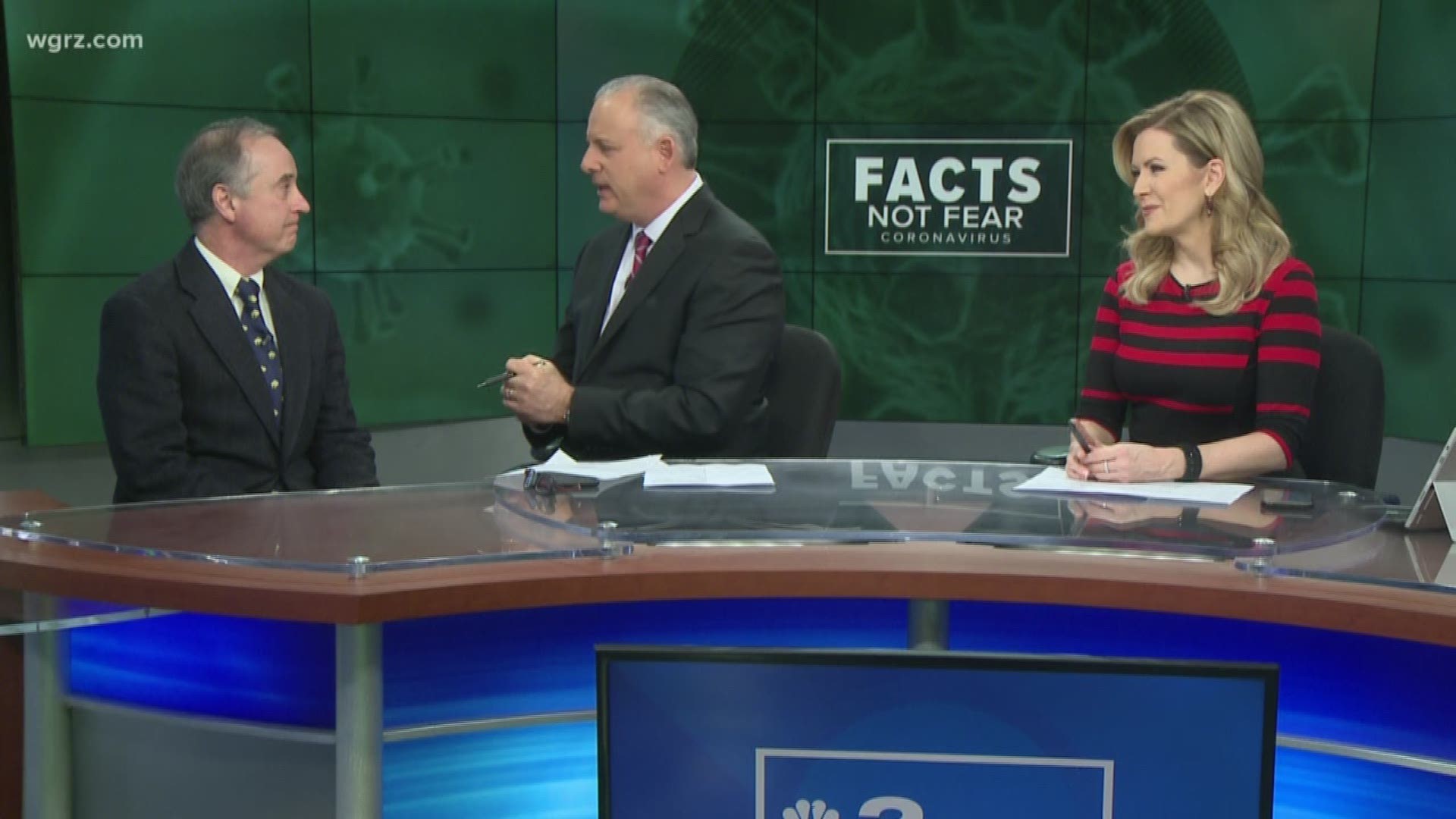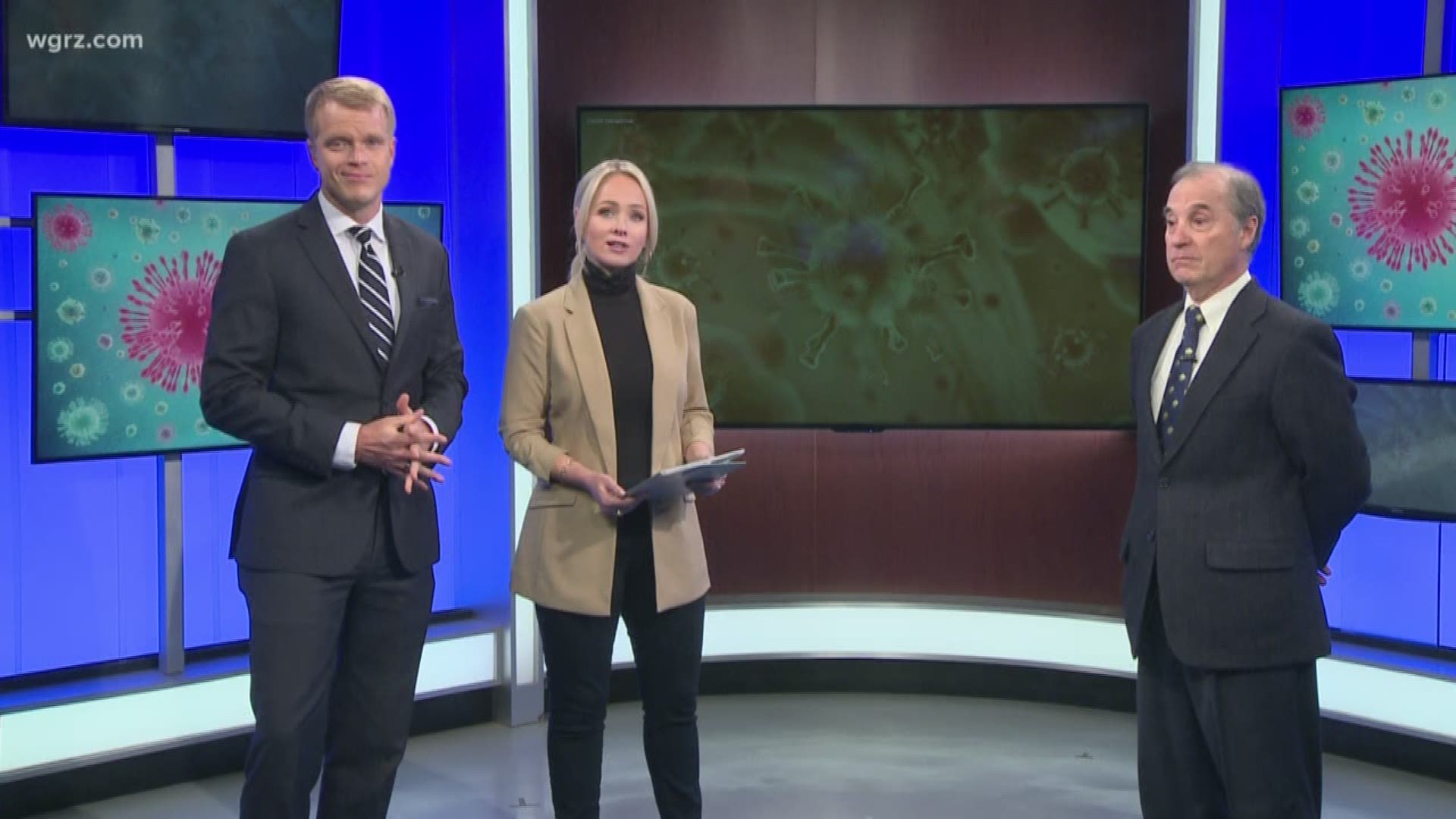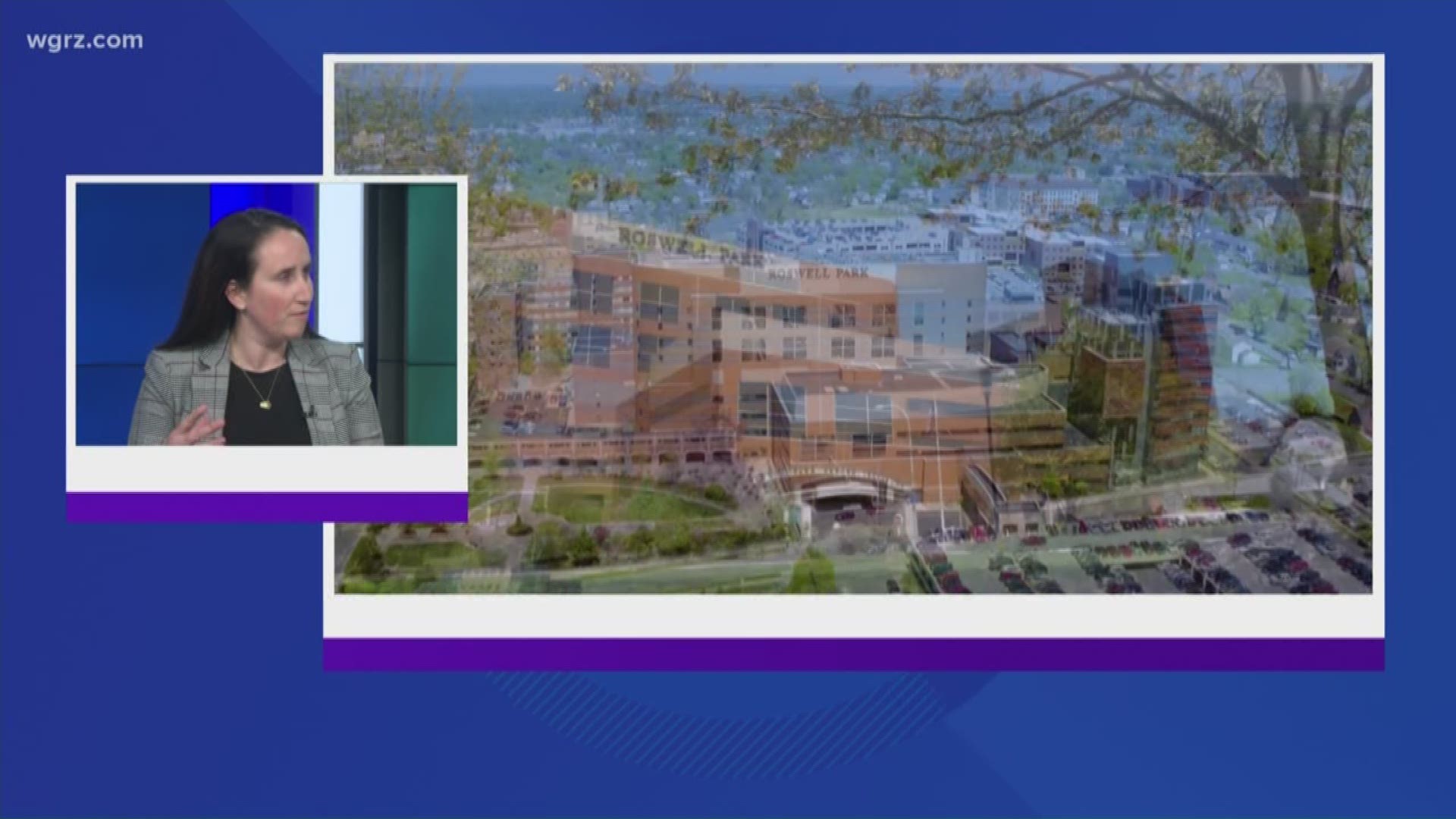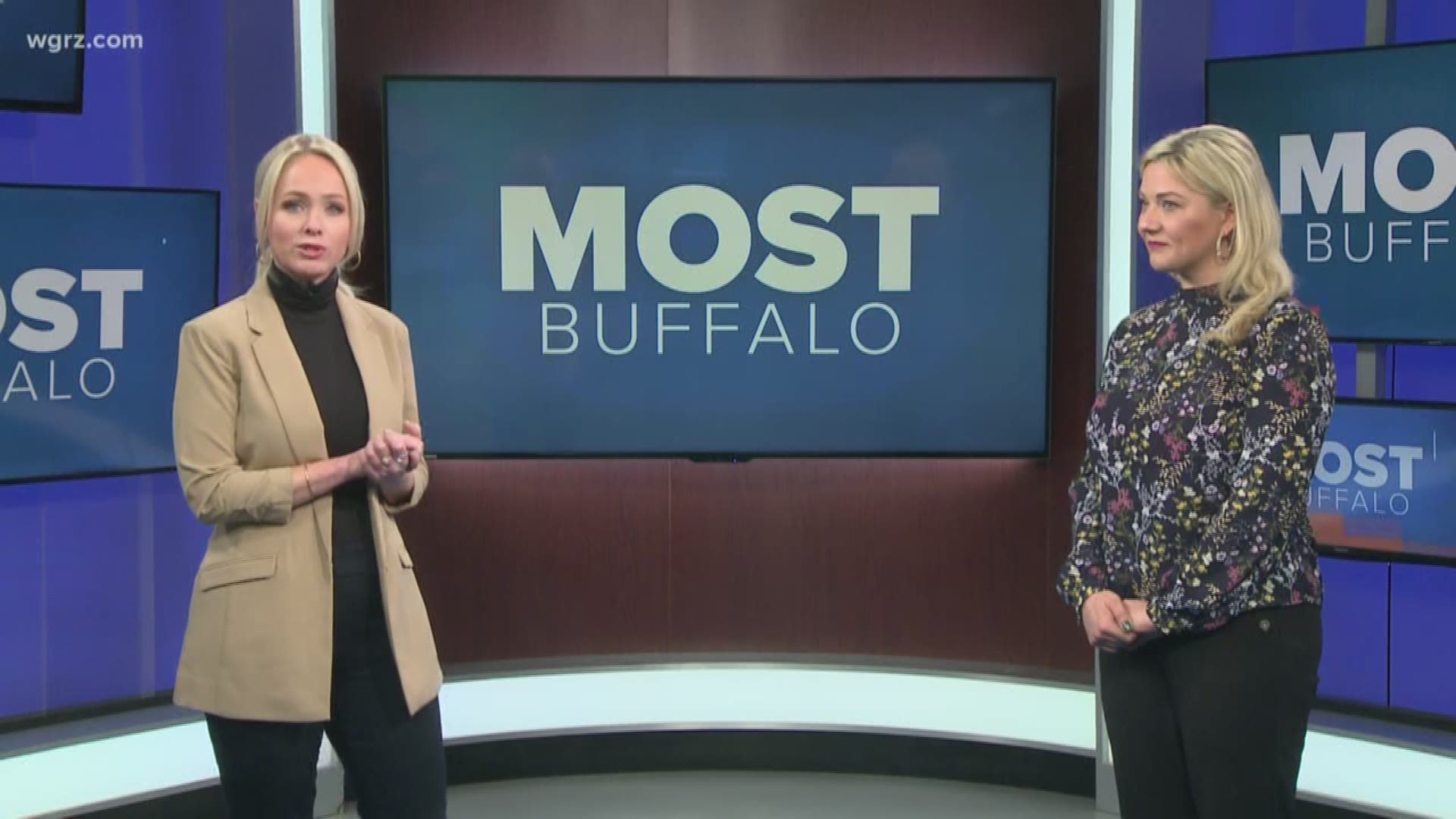BUFFALO, N.Y. — We know there are tons of questions people have about the coronavirus pandemic and how you can protect yourself here in Western New York.
So 2 On Your Side asked medical experts, seeking answers.
Stopping by to answer questions about coronavirus, also known as COVID-19, on Thursday were Dr. Thomas Russo, an expert on infectious diseases; Dr. Katherine Mullin, the Director of Infection Control at Roswell Park Comprehensive Cancer Center; and Jill Dunston, a licensed mental health professional who is the program director at Best Self Behavioral Health.
Dr. Thomas Russo
Q: How does coronavirus, also known as COVID-19, compare to other infectious diseases you've studied?
Russo: There's significant concern that some of the mortality rates we've seen across the globe, that this may be more serious than the flu, which is a disease, I think, we know and understand. Certainly, if you're part of a vulnerable population, if you're older with comorbidities, there is potential for significant consequences, and we need to be prepared, we need to protect ourselves, and we need to be safe until we learn more about this virus.
Q: Let's clarify comorbidities. What kind of conditions are people most at-risk with?
Russo: If your immune system is compromised in some fashion, and all of us as we got older, our immune system doesn't work quite as it used to when we were young. Or individuals who are on certain medications. Certain cancers, or particularly if you have underlying heart and lung disease, where your lungs aren't working as well as they used to.
Q: There are basically two schools of thought. One side says, yes, cancel the events now and be proactive rather than reactive. Others say if there's no confirmed cases here, why should we change our lives? What do you say to that second group?
Russo: Superficially, that sounds great to them, right, that they want to carry on with their lives and business as usual. The problem is that we all have loved ones and close contacts with individuals that are at greater risk. All of those young individuals have parents who are at greater risk, grandparents, or other individuals that they care about. We're in this together as a community.
Q: Besides washing your hands, is there anything else people can do to stay healthy?
Russo: Probably the most important spread of the virus is through respiratory (means). We're still trying to understand the distances the virus can travel through the air, but we think at least six feet. So that's why there's all this talk and discussion about cancellations of large gatherings, with people in close proximity. All of us when we talk, or if someone using poor judgment who is actually ill shows up at these gatherings and they're coughing and sneezing ... you're at rish for getting infected.
Q: Should people wear medical masks?
Russo: If you're healthy right now, the recommendation is to not wear a mask, and this is in part because there's a mask shortage, and we want the masks to be used by those individuals who are at the greatest risk, who are infected, or health-care providers who are going to be taking care of sick patients.
Dr. Katherine Mullin
Q: Roswell Park emailed patients and caregivers on Thursday with some new restrictions put in place for visitors. What are those restrictions?
Mullin: We have decided to limit all visitors. All patients can have one visitor with them, whether they're in the hospital setting or if they're coming to an appointment. ... That visitor should also be healthy, so they should not have had a fever or have any respiratory symptoms as well. We are actively screening for that, as well, to protect our patients.
Q: There's a lot of concern about patients at Roswell Park. Who is at risk there with the coronavirus?
Mullin: Obviously, our cancer patients who are undergoing treatments are at higher risks for getting infections, so we think is going to be the same for this virus as it is for a lot of other viruses. So we are worried that cancer patients, if they're exposed to this, are going to be high risk for complications. Just like, in this specific virus, older patients in general, and older Americans, will be at risk for getting more disease than younger Americans.
Q: Are they doing any special cleaning at Roswell Park?
Mullin: We have routine cleaning practices that should clear out all these viruses.
Q: A lot of people are asking if you get coronavirus, can you get it again?
Mullin: It's unlikely that people will get a second bout of this specific coronavirus. Coronavirus is a big family in general. You're at risk for getting a more common cold coronavirus, but this specific coronavirus that we're worried about that causes worse disease in people, you're unlikely to get (this strain) again.
Jill Dunston
Q: Some of this is very much about how humans react in these situations. How does that affect our mental health?
Dunston: In times like this, when you are dealing with any type of adversity, we have a lot of tools already. We've gone through difficult things in the past, we've gone through things in our personal histories and our stories. I think it's really important to use the skills that you already know, the strengths that you already have, in order to deal with things like this."
Q: There can be a lot of overwhelming information. Is there any tools we can use to get the people information they need, but also giving people the opportunity to take a breath and get some perspective?
Dunston: If you're noticing that you're getting triggered, or if watching the news coverage in the media is causing you an adverse reaction, it's really important to keep that time-limited. Make sure that you get your information, but you're not watching endless hours of media coverage or doing your own research and trying to figure out these things out for yourself. Limit your information, you use what you need, and then you're doing things that bring you joy, that bring you happiness. It could just be playing with your children or doing an activity as a family."
Q: What else can you do?
Dunston: Checking on folks you might have not contact with, and doing that on the phone or visiting, however you feel comfortable ... asking them, how do you feel about this? What have you done to take care of yourself?




